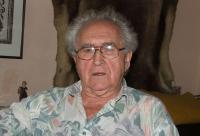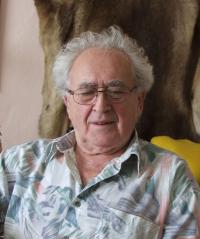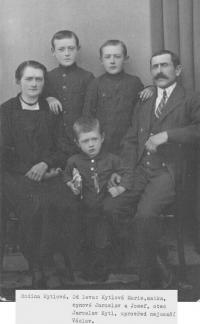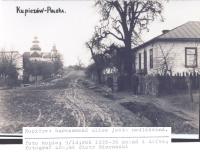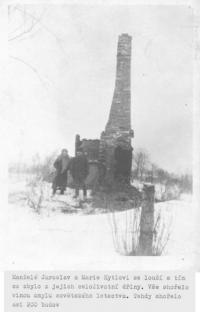“When my wife first came to see me in November 1953, she didn’t know what I look like. I knew what she looked like. We were allowed some visits, so I sent her an invitation and she came as a cousin. She had to behave like a cousin, and we kissed each other. When she came home, her mother said: ‘The first one you see and you kiss him right away. You must apologize.’”

Stáhnout obrázek
Václav Kytl was born in 1928 in a Czech village Kupičov at Volhynia in the former Poland. After the outbreak of WWII he participates in the activities of the Kupičov militia. A year later, after crossing the frontline, he witnessed the Soviet bombing of Kupičov. Soviet Air Forces had then mistaken the target. Until 1945 he served in the platoon of Volhynian Czechs and he was patrolling and fighting against the Bandera groups. In summer 1945 he got a leave to Rovno and from there he went to Žatec. He started studying an economical school in Postoloprty; his parents came to Czechoslovakia two years later, in 1947. After February 1948, Václav Kytl joined a group of young people, mostly Volhynian Czechs, who distributed anti-communist newsletters. He was arrested in November 1948 and sentenced to six years in prison. The only job he could get after the release was with a pick on the railroad construction. In the beginning of the sixties, he could attend an architectonic high school as a part time student and obtain the graduation exam. He worked in the state constructions. Most of his life, he lived in Maštov, Northern Bohemia.
